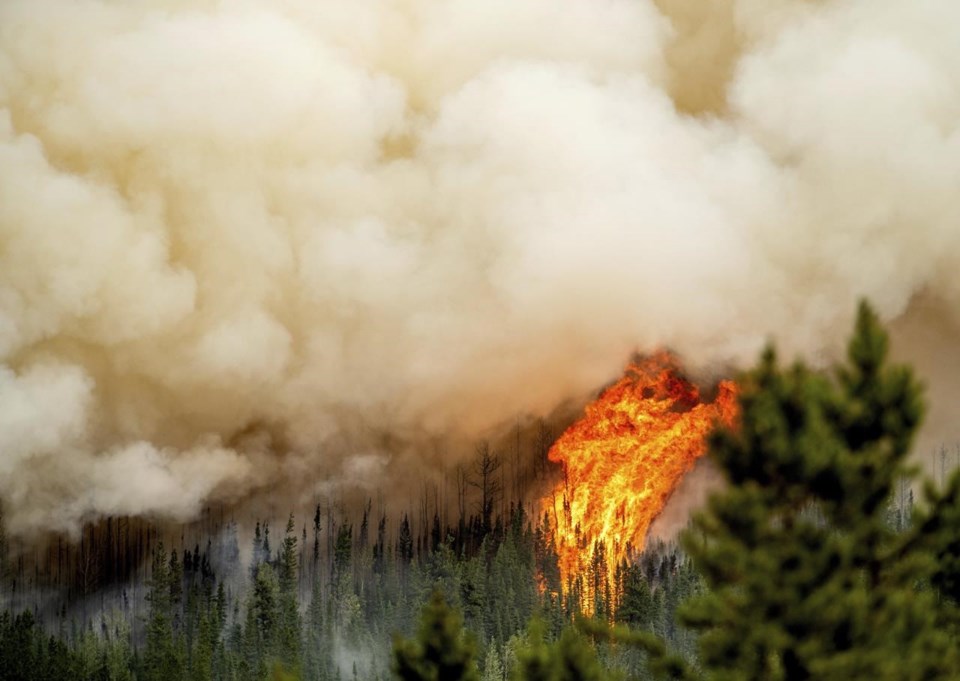VANCOUVER — More campfire bans are on the way in British Columbia, with a heat wave in many areas not expected to ease for days and a moderate to extreme wildfire risk covering all but the southeast corner of the province.
The –°¿∂ ”∆µ Wildfire Service said the Cassiar and Bulkley fire zones within the Northwest Fire Centre prohibited campfires from noon Thursday, adding to the ban imposed in that centre's Nadina fire zone last month.
Campfires will also be prohibited across the entire Cariboo Fire Centre at noon Friday.
That will leave the Southeast Fire Centre and one zone within the Northwest Fire Centre as the only –°¿∂ ”∆µ areas where campfires will still be permitted.
The expanded bans came after five temperature records were set Wednesday from northeastern –°¿∂ ”∆µ to Vancouver Island, and Environment Canada warned of possible lightning storms across much of the interior.
The wildfire service reported more than 100 active fires in –°¿∂ ”∆µ, most of them concentrated in the northeast, including a suspected lightning-caused fire south of Fort St. James that was spotted Wednesday and had the potential to cut the only road to the community.
"Multiple initial attack crews are currently responding to assess the fire and determine additional resource needs," the wildfire service said in its description of the blaze that had charred half a square kilometre of grass, brush and heavy timber on the west side of Highway 27 within hours of flaring up.
A heavy equipment team, air tankers and helicopters were also being deployed to the area about two hours by road northwest of Prince George, the wildfire service said.
Environment Canada also issued heat warnings for several regions in the province, spanning inland sections of the north and central coasts, including Bella Coola, Terrace and Kitimat.
Daytime highs near 30 C were expected through Sunday in those communities, while Lytton and other parts of the Fraser Canyon could see highs between 30 C and 35 C.
Environment Canada warned that the risks of extreme heat are higher for children, pregnant women, older people, those with chronic illnesses and people working or exercising outdoors.
The weather agency forecast temperatures to gradually dip to more seasonal levels by early next week.¬Ý
This report by The Canadian Press was first published July 6, 2023.
The Canadian Press




